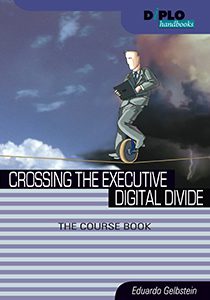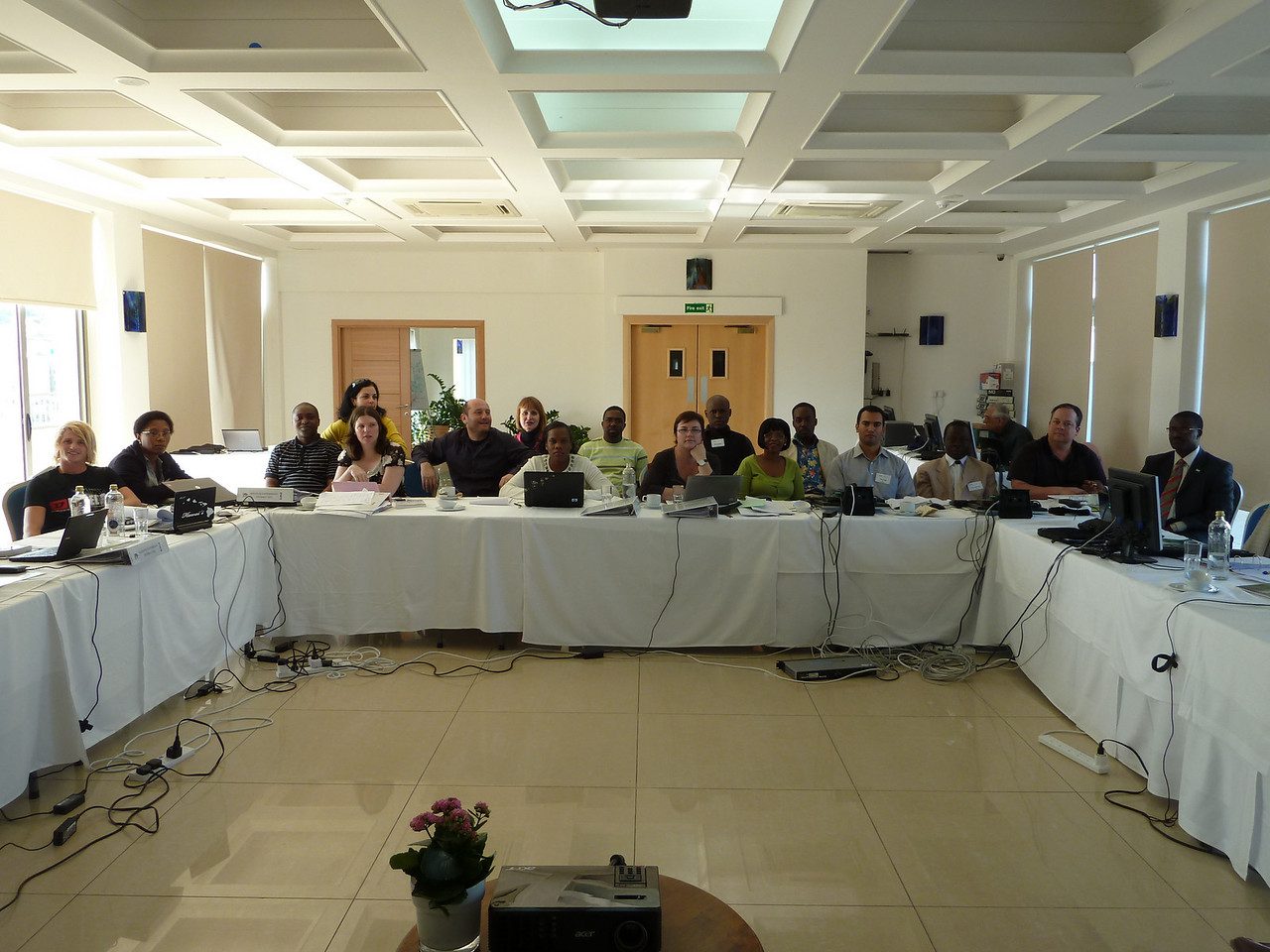Author: Maduka Kingsley Attamah
Bandwidth management: the public policy approach in a university campus network
2011
You may also be interested in
Interplay between Telecommunications and Face-to-Face Interactions: A Study Using Mobile Phone Data
The study explores the relationship between telecommunications and face-to-face interactions using mobile phone data.

E-learning at Fiji National University
In this paper, Fiji National University (FNU) was used to determine the possibility of e-learning. A new programme was chosen and a programme document was written. Based on the programme, a unit syllabus was developed. Given the infrastructure of the information and communication technology (ICT) department at FNU, this project will be deployed as a pilot project for evaluation and monitoring of e-learning research.

The role of knowledge in the cyber-age of globalisation
In his paper, Richard Falk reflects on the application of information technology on diplomacy, and discusses the challenge of converting information technology to ‘knowledge technology’, and subsequently to ‘wisdom technology’. Yet, the ‘crossroads in human experience’ brings many challenges and dangers which the author analyses.

Creating enabling environments for access to the Internet
'In most developing countries access to the Internet for people without disabilities is an issue. Thus the thought of access to people with disabilities is rarely considered.' - Emmanuel Edet from Nigeria

Facing the challenges of an Africa-wide ICT strategy
'There is a need to address these challenges to enhance the capacity of the AU organs, institutions and member states to better respond to instances of ICT policy in Africa. As part of the evolving African governance architecture, there is a need to formulate an ICT strategy...' - Eliot Nsega from Uganda

Broadening the diplomatic bandwidth
‘I believe whistle-blowing websites have a greater role to play in the future of the humankind. These are a few of the issues that I became aware of through DiploFoundation, on whose blogosphere these issues continue to be debated.’ - Felix Samakande from Zimbabwe

Factors influencing broadband adoption and digital content consumption in developing countries: A case from Pakistan
This paper attempts to redress the issues of broadband adoption and digital content consumption and provides detailed analysis on the factors that influence them, and rejection determinants in a developing country like Pakistan.

Crossing the Executive Digital Divide
Information and communications technologies (ICT) have become critical in business, government, manufacturing, critical infrastructures, academia, and, literally, everywhere else, and yet, despite the large sums of money involved, ICT remains the least well understood function in an organization.

Bridging the digital divide
‘Internet governance (IG) is a new field which lacks expertise in Madagascar. Some of the pressing issues in Madagascar are the digital divide, IT illiteracy, and the inadequacy of national jurisdiction with technology advances.’ - Zoniaina Fitahiana Rakotomalala from Madagascar

Information and communications technologies for development
The text discusses the role of information and communications technologies (ICTs) in development.

Evaluation du statut de l’E-Gouvernement en Union des Comores
L’e-gouvernement consiste à l’utilisation des Technologies de l’Information et de la Communication (TIC) par un gouvernement pour transformer sa façon d’administrer, de produire et de délivrer efficacement des services publics aux citoyens.

Developing ICT for youth and people in rural settings
'There is a huge need for online learning infrastructure at the national level in my country and I am sure it is the same in other small island developing states... I encourage governments to have their public servants, in particular youth to study Internet governance...' - Fuatai Purcell from Samoa

Launching an ICT campus and beyond
'I found that living in a developed economy is quite different from living in my developing country environment. Things like the Internet are taken for granted...In sub-saharan Africa, lack of the same (Internet) resources would automatically discourage me...' - John Walubengo from Kenya

The Internet and diplomats of the 20th century
The Internet and diplomats of the twenty century: how new information technologies affect the ordinary work of diplomats.

Diplomacy as an instrument of good governance
The functioning of diplomacy is influenced by a complicated combination of different interrelated factors. This paper briefly analyses their impact on the evolution of diplomacy and discusses how diplomacy as an instrument of good governance should adjust itself to meet the new challenges, to become more relevant, open and agile, to modify its methods and to fully utilise opportunities offered by the technological revolution.

The waning of the state and the waxing of cyberworld
This paper discusses whether IT is functioning mainly as an instrument of states in their quest for power and wealth or is principally operating as a transformative agent by market forces and various sectors of civil society.
The Hypocrisy Threatening the Future of the Internet
The message highlights the threat of hypocrisy to the future of the internet, raising concerns about the negative impact of inconsistent actions and standards on the digital landscape.

Diplomatic Reporting in the Internet Era
Paper delivered by Ambassador Victor Camilleri during the E-diplomacy panel on Diplomatic Reporting in the Internet Era after WikiLeaks, held on 9 February, 2011.

Bandwidth management: the public policy approach in a university campus network
This research presents an example of how evidence-based policy-making can lead to bandwidth optimisation in a university network, giving rise to improved network performance and cost savings.

Adoption and adaptation of e-health systems for developing nations: The case of Botswana (Research by Benson Ncube)
This paper seeks appropriate solutions to improve the access and capability of the health delivery systems in Botswana. The research reveals that many countries are now using information-based services to assist in the administration and delivery of medical services via telecommunication infrastructures.

Digital Opportunities for All: Meeting the Challenge
The text is about embracing digital opportunities to overcome challenges and ensure access for all.

The use of ICT in human rights promotion: A case study of the African Commission on Human and Peoples’ Rights
The paper seeks to render a critical analysis that will lead and co-ordinate a programme of promotional work across the region, including the integration of ICT strategies in its promotional work.

Exploring the need for speed in deploying information and communications technology for international development and bridging the digital divide
This paper comes on the eve of the millennium development goals deadline of 2015 which acknowledges ICT as the enabler for speeding towards the finish line. The quest is to explore whether we are all speeding towards a clearly defined goal, given our varied capacities and affinities.
The latest from Diplo and GIP
Tailor your subscription to your interests, from updates on the dynamic world of digital diplomacy to the latest trends in AI.
Subscribe to more Diplo and Geneva Internet Platform newsletters!
Diplo: Effective and inclusive diplomacy
Diplo is a non-profit foundation established by the governments of Malta and Switzerland. Diplo works to increase the role of small and developing states, and to improve global governance and international policy development.


